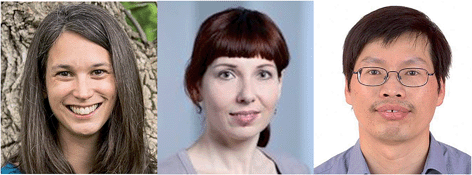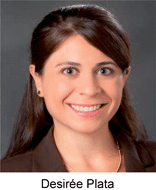Environmental Science: Processes & Impacts in 2018
Abstract
2017 was another successful year for Environmental Science: Processes & Impacts (ESPI); it saw the expansion of our Editorial team and publication of two excellent Themed Issues, all while maintaining our commitment to provide our authors with exceptional customer service and fast times to publication. Through this Editorial, we wish to reflect upon some of the highlights from 2017 and also take this opportunity to reveal further new additions to the ESPI team and our plans for 2018.
Highlights from 2017
In 2017 we published two high-quality Themed Issues. In March, we published a Themed Issue on the topic of QSARs and Computational Chemistry Methods in Environmental Chemical Sciences, edited by Associate Editor Paul Tratnyek (Oregon Health & Science University) and Advisory Board member Kathrin Fenner (Swiss Federal Institute of Aquatic Science and Technology, Eawag) (http://rsc.li/qsars). This Themed Issue was supported by submissions from many of the leading scientists in the field of in silico environmental science and featured an array of timely primary research alongside five insightful reviews and perspectives. Already, we can see that papers published in this Themed Issue are attracting a high level of attention, as evidenced by their download, citation, and altmetric numbers, with three of the papers in this issue also being featured in a collection showcasing the journal’s Top 10 Most Downloaded articles from 2017 (http://rsc.li/espi-topdownloaded).In August we published a Themed Issue on the topic of Bioanalytical Tools for Water and Sediment Quality Assessment, edited by Associate Editor Edward Kolodziej (University of Washington) and Bryan Brooks (Baylor University), Kyungho Choi (Seoul National University) and Ruth Marfil-Vega (American Water) (http://rsc.li/water-assessment). This issue showcases some of the latest work on analytical approaches to understanding the health of aquatic and sediment ecosystems. In their Editorial introducing this issue (DOI: 10.1039/C7EM90032E), the Guest Editors called upon the research community to recognise the importance of biology in this type of work, and reiterated the need for interdisciplinary approaches and collaboration to progress this field further.
In our first issue of 2018, we were excited to bring you an issue dedicated to Modeling in Environmental Chemistry (http://rsc.li/modeling), edited by Associate Editor Matthew MacLeod (Stockholm University), Todd Gouin (TG Environmental Research) and Tom McKone (University of California, Berkeley). In their Editorial for the issue (DOI: 10.1039/C8EM90001A) they highlight the importance of this type of research, noting in particular the prominent role that models have played in the regulatory assessment of environmental risks associated with the use of chemicals in commerce.
Editorial Board membership
We are pleased to announce three new additions to our Editorial Board: Delphine Farmer (Colorado State University, USA), Lenny Winkel (Swiss Federal Institute of Aquatic Science and Technology, Eawag, Switzerland) and Guang-Guo Ying (Chinese Academy of Sciences & South China Normal University, China) (Fig. 1). Each of these new members brings a wealth of experience and knowledge to the ESPI team, and we are excited to work with each of them on the journal.Additionally, Desirée Plata (Yale University, USA), who has been an ESPI Editorial Board member for several years and has more recently been leading the Emerging Investigator Series for the journal, will now be taking on the role of Reviews Editor. If you have an idea for a possible review or perspective for the journal then please do contact the Editorial Office (E-mail: espi-rsc@rsc.org) with a brief synopsis or abstract for consideration.
Lastly, we have expanded our Advisory Board with seven new members: Richard Brown (National Physical Laboratory, UK), Tamara Galloway (University of Exeter, UK), Colleen Hansel (Woods Hole Oceanographic Institution, USA), Hans Christian Bruun Hansen (University of Copenhagen, Denmark), Kara Nelson (University of California, Berkeley, USA), Weihua Song (Fudan University, China) and Elsie Sunderland (Harvard University, USA). Our Advisory Board is now 27 members strong and we look forward to working with them all on the journal.
Emerging Investigators
ESPI is committed to supporting researchers in the early stages of their careers through our Emerging Investigator Series (http://rsc.li/espi-emerging). During 2017, we were very pleased to highlight the exciting and innovative research of a number of emerging scientists through this Series; details of whom are provided in Fig. 2 and Table 1.| Cora Young (Memorial University, Canada) | Emerging investigator series: a 14-year depositional ice record of perfluoroalkyl substances in the High Arctic | DOI: 10.1039/C6EM00593D |
| Yu Yang (University of Nevada, Reno, USA) | Emerging investigator series: dual role of organic matter in the anaerobic degradation of triclosan | DOI: 10.1039/C7EM00003K |
| Anke Neumann (Newcastle University, UK) | Emerging investigator series: As(V) in magnetite: incorporation and redistribution | DOI: 10.1039/C7EM00237H |
| Andres Martinez (University of Iowa, USA) | Emerging investigator series: development and application of polymeric electrospun nanofiber mats as equilibrium-passive sampler media for organic compounds | DOI: 10.1039/C7EM00289K |
| Ami Riscassi (University of Virginia, USA) | Emerging investigator series: the effect of wildfire on streamwater mercury and organic carbon in a forested watershed in the southeastern United States | DOI: 10.1039/C7EM00419B |
In 2018 we will be continuing to highlight the exceptional work of early career researchers through this initiative, under the guidance of new Editorial Board members Delphine Farmer, Lenny Winkel and Guang-Guo Ying who will curate this Series as Emerging Investigator Series Editors.
What’s new for 2018?
With all of these developments on ESPI during 2016 and 2017 you may be forgiven for thinking that 2018 will be a quiet year for the journal. However, in addition to bringing you more timely Themed Issues, we are hosting a symposium at the University of Stockholm this April featuring talks from our Editorial Board members. Furthermore, Editor-in-Chief Kris McNeill and Executive Editor Sam Keltie will be attending the Spring ACS meeting this March in New Orleans, where they will be delighted to meet with our authors and readers. And in August 2018 we will be running a session at the Fall ACS meeting in Boston in collaboration with our sister journals, Environmental Science: Nano and Environmental Science: Water Research & Technology, featuring talks from a selection of our Emerging Investigator Series authors. Therefore, 2018 will indeed be a busy year for the journal, and you can register to keep up to date with the latest journal news at http://rsc.li/envsci.Most importantly, we remain completely committed to providing the environmental science community with a fresh, society venue to disseminate your best research, where author experience is paramount, as evidenced by our efficient and attentive service through the entire process from submission to publication.
Thank you for taking the time to read this Editorial. We would like to take this opportunity to thank all of our authors, reviewers and readers for their support during 2017, and we look forward to working with you to serve the environmental science community in 2018 and beyond.
With best wishes for a happy and successful year.
Kris McNeill, Editor-in-Chief
Sam Keltie, Executive Editor
Emma Eley, Deputy Editor
| This journal is © The Royal Society of Chemistry 2018 |



